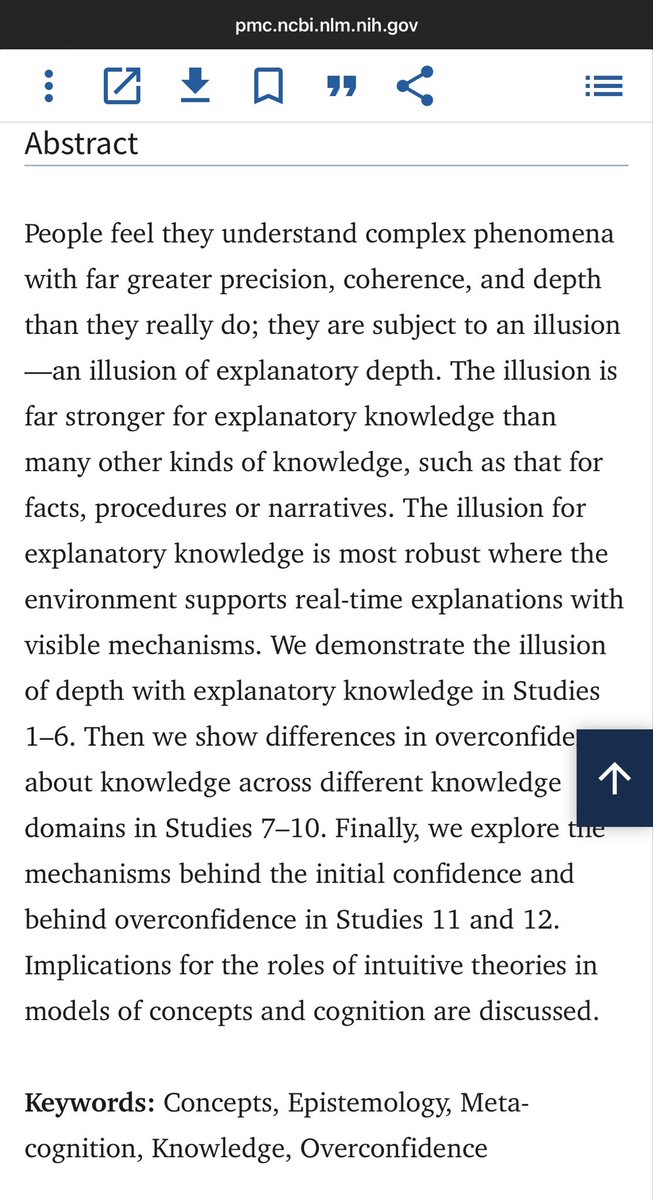The Illusion of Explanatory Depth:
We think we understand something until we’re asked to explain it. Often, we’re clueless. Breakdown, consequence, fix. 1/5
We think we understand something until we’re asked to explain it. Often, we’re clueless. Breakdown, consequence, fix. 1/5

Example: A toilet. Most would claim knowledge, but describing its mechanics exposes one’s ignorance. We overestimate our grasp of policies, tech, even zippers. 2/5.
This breeds arrogance, pettiness, and shallowness. Conversations falter: Weak arguments, dogmatism, uninformed opinions. People think we’re dicks. It’s not stupidity, it’s cognitive default. Recognition sharpens our thinking. 3/5
It’s worst in echo chambers (university departments). Almost never found in jiu jitsu or reality-based activities. Social media amplifies it: Like, share, nod. Result: Bad decisions in voting, daily choices. Don’t be a dick. Spot it in yourself to overcome. 4/5
Combat it: Ask if you can explain fully, then try. Use Street Epistemology to probe beliefs. Detail concepts, write or speak them out. To not pretend to know things you don’t know, you must first know that you don’t know them. 5/5
• • •
Missing some Tweet in this thread? You can try to
force a refresh





